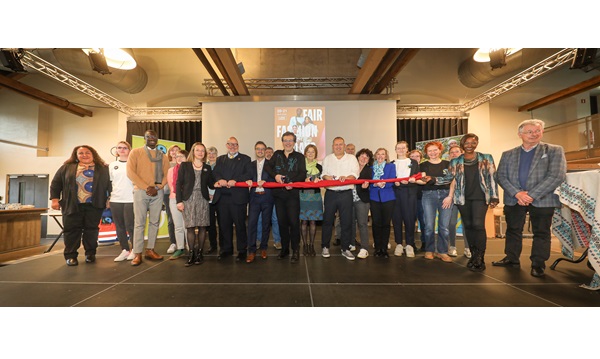 Credit: ©charlexkodelta
Credit: ©charlexkodelta
The non-profit organisation Fairtrade Lëtzebuerg and the Weltbuttek of Diekirch are organising the “Fair Fashion Days” in collaboration with the city of Diekirch, at the Al Seeërei centre on Saturday 20 and Sunday 21 April 2024, from 10:00 to 18:00.
At the “Fair Fashion Days”, a multitude of activities await visitors: escape games and fun games, an exhibition and creative workshops such as sewing, screen printing, macramé or crochet workshops, and sales stands offering different brands of Fairtrade-certified clothing.
These “Fair Fashion Days” are part of the “Rethink Your Clothes” campaign, mandated by the Luxembourg Cooperation and implemented by Fairtrade Lëtzbuerg and Caritas Luxembourg. The two organisations notably aim to offer “global citizenship education”, particularly in the context of the textile sector. By raising awareness of global issues such as the working conditions of workers, the environmental impact of cotton and textile production and economic inequalities, this type of information can broaden horizons and encourage more responsible consumption. By cultivating solidarity and empathy, consumers can make informed decisions, thereby promoting fairer and sustainable business practices in the fashion industry. In this way, global citizenship education empowers individuals to become agents of positive change, helping to transform the textile sector towards a more equitable and respectful path.
Luxembourg actors, the driving force behind “Fair Fashion”
Fair Fashion is developing day by day in Luxembourg, thanks to committed Luxembourg actors, Fairtrade Lëtzbuerg noted. This year again, the “Fair Fashion Days” bring together numerous stands run by individuals who actively contribute to promoting fair and sustainable fashion in the Grand Duchy. Although the focus is often on the power of consumers, these players play a crucial role in offering a range of certified products in-store. This allows consumers to have physical access to fair-trade fashion.
Fairtrade-certified cotton products are varied: clothing, sheets, towels, underwear and accessories of all kinds. The Fair Fashion Lab – Edition 2024 will also be available on this day.
The issues in the textile industry linked to cotton production and working conditions are deep and complex. Cotton is one of the most widely used raw materials in clothing manufacturing, but its production is associated with many social, environmental and economic problems. First, volatile cotton prices often lead producers into over-indebtedness. Additionally, growing cotton requires a significant amount of water, which can lead to the degradation of water resources in the regions where it is grown, often already arid areas. Finally, the extensive use of pesticides and chemical fertilisers in cotton farming can contaminate soil and water sources, endangering the health of farm workers and surrounding communities. Besides, workers in the textile sector often face precarious conditions: poverty wages, excessive working hours, violations of labour rights, including forced labour and child labour and unsafe working environments which can lead to occupational injuries and illnesses.
Currently, awareness of the impact of the textile industry on the lives of millions of people and the planet is far from widespread. The lack of transparency in the textile supply chain makes it difficult for consumers to know under what conditions the clothing they buy was manufactured.
The Fairtrade label: style and respect for human beings and the environment
Since the launch of the “Fairtrade Cotton” label in 2009, a movement has spread across Europe where brands have decided to commit to creating fair and sustainable clothing, reconciling style and respect for human beings and the environment.
The Fairtrade label acts as a catalyst in the textile industry by establishing high social, economic and environmental standards for the production of cotton. These standards aim to guarantee fair prices for cotton producers as well as dignified working conditions for workers and the protection of the environment. Additionally, Fairtrade premiums are invested in community projects such as education, healthcare and local infrastructure.








